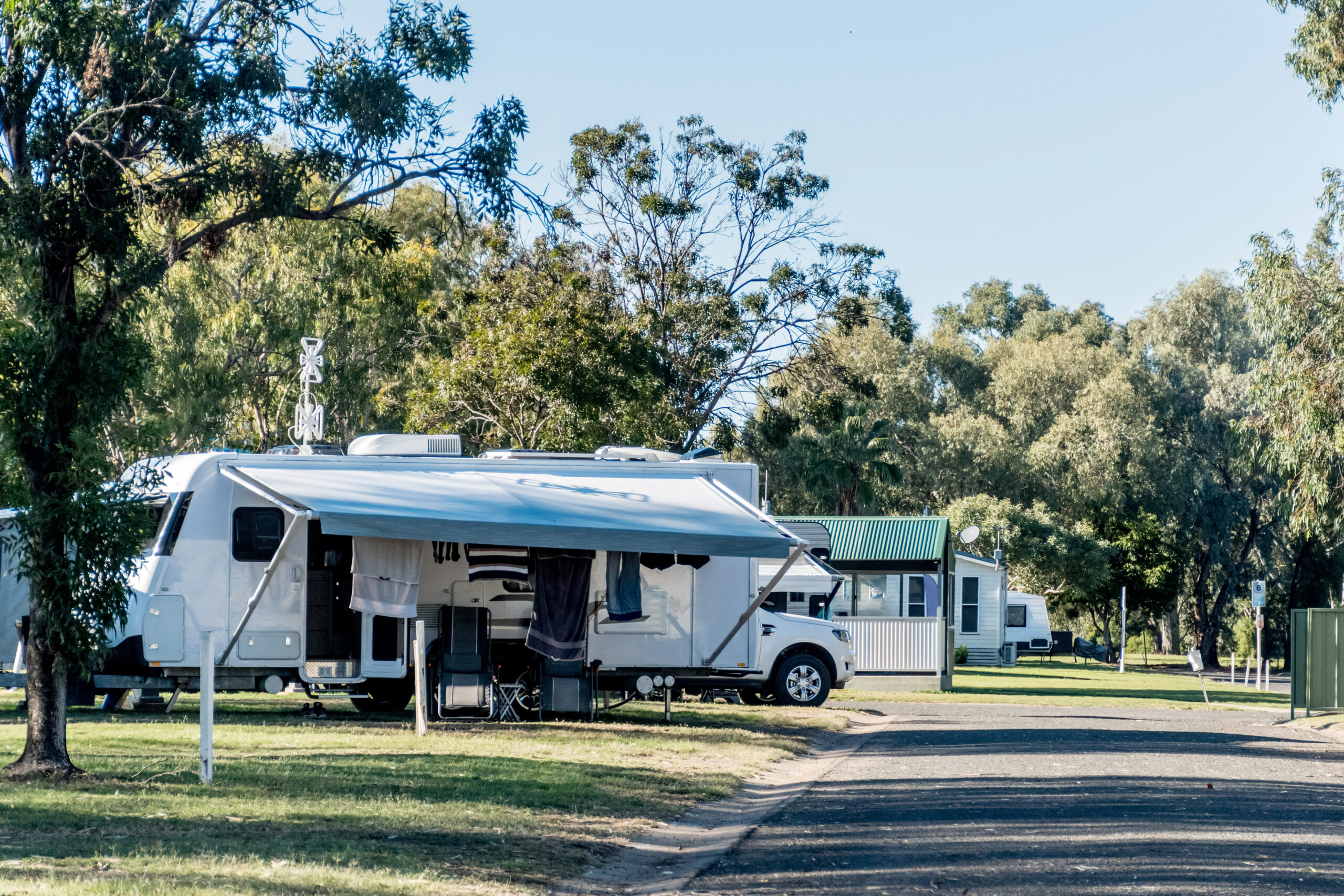The campground industry is evolving, with an increasing number of campground entrepreneurs seeking innovative ways to grow their businesses and stay competitive. One of the most effective strategies for achieving this growth is through campground expansion, specifically by integrating long-term stay programs.
These programs cater to guests who prefer extended stays, offering a stable and reliable revenue stream for campground owners. For campground owners, these programs not only ensure higher occupancy rates but also foster stronger relationships with guests, leading to enhanced customer loyalty and positive word-of-mouth marketing.
In this article, we will explore the various facets of campground expansion, focusing on the benefits and implementation of long-term stay programs.
From understanding the fundamentals of campground expansion to designing and marketing your long-term stay offerings, this article aims to equip RV park entrepreneurs with the knowledge and strategies needed to thrive in this growing market.
What Is Campground Expansion?
Campground expansion refers to the process of increasing the size, capacity, or offerings of an existing campground facility to cater to a larger clientele or enhance the overall experience for visitors.
This expansion is crucial for campgrounds looking to accommodate a growing number of outdoor enthusiasts and capitalize on the increasing interest in camping and outdoor recreation.
The decision to expand a campground can stem from factors such as high demand during peak seasons, the desire to introduce new amenities and activities, or the need to update existing facilities to meet modern standards.
As campgrounds evolve to meet the changing needs and preferences of visitors, the expansion process typically involves careful planning, investment in infrastructure, and consideration of environmental sustainability to preserve the natural surroundings.
Why Is There a Need for Campground Expansion?
The increasing demand for outdoor recreational activities and the growing popularity of camping and RV travel have necessitated the need for campground expansion to meet the rising customer expectations and capitalize on revenue-generating opportunities.
As more individuals and families seek ways to connect with nature and enjoy the outdoors, campgrounds must evolve to provide enhanced facilities and services. By expanding campgrounds, owners can cater to a wider range of customers, including those with larger RVs or specific preferences for amenities.
This not only enhances customer satisfaction but also opens up new revenue streams through increased bookings and longer stays. Aligning campground offerings with current market demands ensures competitiveness and relevance in the ever-evolving outdoor recreation industry.
What Are the Current Trends in Camping and RV Travel?

Current trends in camping and RV travel highlight a shift towards sustainable tourism practices, a focus on family-friendly experiences, and an increased interest in outdoor recreation activities that promote environmental conservation and community engagement.
Travel enthusiasts are now veering towards eco-conscious accommodations and embracing off-the-grid experiences that minimize their carbon footprint. Emphasis is placed on integrating sustainable resources, such as solar power and composting toilets, into camping facilities.
Many camping sites are incorporating educational programs and nature-oriented workshops to engage families in environmental preservation efforts.
As customer preferences evolve, camping and RV destinations are adapting by offering more diverse activities like hiking, kayaking, and wildlife viewing, fostering a deeper connection with nature.
What Are the Benefits of Campground Expansion?
Expanding a campground is a strategic move that can bring numerous advantages to the business. From boosting revenue to enhancing guest satisfaction, the benefits of campground expansion are substantial and multifaceted.
- Enhanced Business Growth: Expanding campgrounds allows for increased capacity, enabling businesses to cater to a broader range of clientele and boosting revenue streams.
- Improved Customer Retention Rates: By offering more amenities and facilities, guests are more likely to extend their stays, leading to higher occupancy rates and improved customer loyalty.
- Development of Upgraded Infrastructure and Amenities: Infrastructure enhancements, such as adding new recreational options or improving existing ones, can attract new customers and enhance the overall satisfaction of existing ones.
Positive customer experience not only encourages repeat visits but also generates positive word-of-mouth referrals, further fueling business growth.
How Does Campground Expansion Benefit the Local Economy?
Campground expansion contributes to the local economy by generating increased revenue streams and enhancing economic viability in the region.
This economic growth is not limited to the campground itself; it ripples out into the community, creating new job opportunities and boosting local businesses that cater to the influx of visitors.
As more tourists are drawn to the area due to the expanded campground facilities, there is a surge in spending on accommodations, dining, and recreational activities, further fueling the economic engine of the region.
The consistent flow of revenue from the expanded campgrounds also supports infrastructure improvements and public services, creating a virtuous circle that contributes to the overall well-being and sustainability of the local economy
What Are the Challenges of Campground Expansion?

While expanding a campground can bring numerous benefits, it also presents several challenges. Managing environmental impact, adhering to compliance standards, and implementing effective risk management strategies are crucial for the sustainable development and operation of expanded facilities.
Here’s a detailed look at each of these challenges:
Environmental Impact Management
- Habitat Disturbance: Expanding a campground can disrupt local wildlife habitats. Careful planning is required to minimize the impact on flora and fauna, ensuring that expansion efforts do not significantly harm the natural ecosystem.
- Soil Erosion: Increased foot traffic and construction can lead to soil erosion. Implementing erosion control measures such as planting vegetation and using barriers can help maintain soil stability.
- Water Pollution: Construction and increased usage can lead to water pollution. Strategies to mitigate this include proper waste disposal, water treatment systems, and regular monitoring of water quality.
- Increased Waste Generation: More visitors mean more waste. Effective waste management systems, including recycling programs and frequent waste removal, are essential to keep the campground clean and environmentally friendly.
Compliance with Regulations
- Zoning Regulations: Expanding a campground often involves navigating complex zoning laws. Understanding and adhering to these regulations is crucial to avoid legal issues and ensure a smooth expansion process.
- Building Codes and Permits: Meeting building codes and obtaining necessary permits can be time-consuming and challenging. Ensuring that all construction meets local and national standards is vital for safety and legal compliance.
- Land Use Ordinances: Adhering to land use ordinances involves understanding restrictions and requirements for using land in specific ways. This might include limitations on the types of structures that can be built or the activities that can take place.
Effective Risk Management
- Impact Assessments: Conducting thorough environmental and social impact assessments helps identify potential risks and develop strategies to mitigate them. This proactive approach can prevent many problems before they arise.
- Emergency Response Plans: Developing and implementing emergency response plans for scenarios such as natural disasters, fires, or health emergencies is critical. These plans ensure the safety of guests and staff.
By addressing these challenges thoughtfully, campground owners can ensure that their expansion efforts are successful and sustainable.
What Are Long-Term Stay Programs in Campgrounds?
Long-term stay programs in campgrounds offer extended accommodation options for guests, providing benefits such as exclusive membership programs, enhanced customer retention opportunities, and the flexibility for individuals or families to enjoy extended leisure stays in scenic outdoor settings.
These extended stay programs not only cater to those seeking a peaceful retreat amidst nature but also present a cost-effective solution for travelers looking to spend prolonged periods in picturesque surroundings.
By incorporating membership offerings, campgrounds create a sense of community among guests, fostering a loyal customer base.
Strategies aimed at enhancing customer loyalty through personalized experiences and tailored services during extended stays contribute to creating memorable moments and encouraging repeat visits.
What Are the Benefits of Long-Term Stay Programs?
Long-term stay programs in campgrounds offer numerous advantages, enhancing customer satisfaction, fostering brand loyalty, and streamlining booking processes. These benefits create a positive and enduring relationship with seasonal guests and long-term vacationers.
Increased Customer Satisfaction
- Deeper Connections with Nature: Guests have the chance to immerse themselves fully in the natural surroundings, enjoying a more relaxed and fulfilling experience. This extended time in nature can significantly enhance their overall satisfaction and well-being.
- Community Engagement: Longer stays allow guests to engage more deeply with the local community and fellow campers. This fosters a sense of belonging and creates a more vibrant and welcoming campground atmosphere.
Fostered Brand Loyalty
- Returning Guests: By encouraging longer stays, campgrounds can build a loyal customer base that returns year after year. These repeat visitors often become brand advocates, promoting the campground to friends and family.
- Sense of Belonging: Guests who stay for extended periods often develop a strong attachment to the campground. This sense of belonging enhances their overall experience and increases the likelihood of future visits.
Streamlined Booking Systems
- Efficient Reservation Processes: Long-term stay programs simplify the booking process, allowing guests to secure accommodations for an extended period with ease. This reduces the hassle of frequent booking arrangements and makes the experience more convenient.
- Enhanced Customer Experience: By offering simplified booking processes, campgrounds can ensure that guests have a smooth and hassle-free experience from start to finish. This efficiency contributes to higher levels of customer satisfaction and repeat business.
Implementing long-term stay programs allows campgrounds to significantly improve guest experiences, build lasting relationships, and create a more stable and profitable business model.
What Are the Different Types of Long-Term Stay Programs?

Various types of long-term stay programs in campgrounds cater to seasonal guests, vacationers seeking extended leisure experiences, and partnerships with local businesses or tourism entities.
- Seasonal guests are those who prefer longer stays at campgrounds during specific times of the year, such as summer or fall. These guests often enjoy the opportunity to immerse themselves in the natural beauty and outdoor activities available in the area.
- Vacationers looking for extended leisure experiences typically seek amenities like cabins or RV hookups to ensure a comfortable stay.
- Collaborative partnerships between campgrounds and local businesses can enhance the guest experience by providing access to activities, tours, or dining options unique to the region.
What Are the Considerations for Pricing and Amenities?
When integrating long-term stay programs into your campground expansion plans, carefully considering pricing and amenities is crucial to attract and retain guests while ensuring profitability. Here are key factors to keep in mind:
Pricing Strategies
- Competitive Analysis: Evaluate the pricing structures of nearby campgrounds offering similar long-term stay programs. This helps set competitive yet profitable rates.
- Tiered Pricing: Offer different pricing tiers based on the level of amenities and services provided. For example, basic sites might have lower rates, while premium sites with full hookups and additional amenities can command higher prices.
- Seasonal Rates: Adjust pricing according to peak and off-peak seasons. Offering discounted rates during the off-peak season can attract guests looking for long-term stays and help maintain occupancy rates year-round.
- Package Deals: Create attractive packages that bundle long-term stays with additional services such as laundry facilities, recreational activities, or dining options. This not only adds value but also simplifies the decision-making process for guests.
Amenities
- Comfort and Convenience: Ensure that long-term guests have access to essential amenities such as reliable Wi-Fi, laundry facilities, and well-maintained restrooms. Comfortable living conditions are key to retaining long-term guests.
- Community Spaces: Develop communal areas where guests can socialize and engage in activities. Community centers, picnic areas, and recreational facilities foster a sense of community and enhance the overall guest experience.
- Exclusive Services: Consider offering exclusive services for long-term guests, such as dedicated staff for personalized assistance, organized events, and discounts on local attractions. These added perks can make your campground stand out.
- Eco-Friendly Options: Incorporate sustainable practices and amenities like recycling programs, energy-efficient lighting, and eco-friendly landscaping. Environmentally conscious guests will appreciate and support these initiatives.
By thoughtfully setting prices and offering attractive amenities, you can successfully integrate long-term stay programs into your campground expansion, driving guest satisfaction and business growth.
How Can Marketing and Promotion Be Used to Attract Long-Term Campers?
Effective marketing and promotion are crucial for attracting long-term campers to your campground. These are some key strategies:
- Targeted Advertising: Use social media platforms like Facebook and Instagram to share engaging content, including photos of amenities, guest testimonials, and special promotions. Invest in Google Ads to target keywords related to long-term camping and RV stays, driving traffic to your website.
- Email Marketing: Send regular email newsletters with updates about new amenities, upcoming events, and exclusive offers to nurture potential guests and encourage bookings.
- Collaborations and Partnerships: Partner with local businesses to offer exclusive discounts and packages, adding value to the long-term stay experience. Promote your campground through local tourism boards to reach a broader audience and attract guests interested in exploring the region.
- Incentives and Promotions: Create special offers and discounts for long-term stays, such as a free week after a month-long stay or discounts on additional services. Implement a referral program to reward current guests for referring friends and family to your long-term stay programs, generating word-of-mouth promotion.
- High-Quality Website: Ensure your website is visually appealing and easy to navigate. Provide comprehensive details about long-term stay options, amenities, pricing, and local attractions. High-quality photos and virtual tours help potential guests visualize their stay.
To help RV parks create high-quality websites, RoverPass created a solution called Premium Website Builder. Our skilled team of writers, designers, and developers possesses the expertise needed to develop RV park websites that are fully equipped to boost traffic, attract more leads, and increase revenue. Additionally, the premium website can be directly integrated with our campground reservation software, simplifying booking processes and effectively serving as your 24/7 sales team.
Frequently Asked Questions
- What is the purpose of integrating long-term stay programs in campground expansion?
The purpose of integrating long-term stay programs in campground expansion is to provide extended camping options for individuals or families who are looking for a more permanent camping experience. This can also help increase revenue for the campground owners.
- How do long-term stay programs differ from traditional camping options?
Long-term stay programs typically involve a longer duration of stay, often ranging from a few weeks to several months. These programs also usually offer discounted rates and amenities for those who choose to stay for an extended period of time.
- What are some amenities that may be included in long-term stay programs?
Amenities can vary, but some common ones include access to laundry facilities, Wi-Fi, cable TV, and recreational activities. Some campgrounds may also offer storage options for personal belongings during the stay.
- Can long-term stay programs be customized based on individual needs?
Yes, some campgrounds may offer customizable long-term stay programs to fit the specific needs of participants. This can include options for different types of camping sites, duration of stay, and additional amenities.
- What are the benefits of integrating long-term stay programs in campground expansion?
There are several benefits, including increased revenue for campground owners, a wider range of camping options for individuals and families, and potential for building long-term relationships with campers who return year after year.
For more expert advice and tips on growing your RV park business, keep reading our blog.






